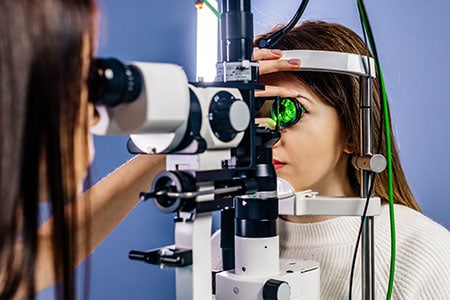All Categories
Featured
Table of Contents
As they expand, their eyes go through substantial changes, making specialized eye treatment essential. Pediatric eye care concentrates on diagnosing and treating eye-related issues certain to youngsters.
![]()
1. Pediatric Eye Exams.
A comprehensive eye evaluation includes checking aesthetic acuity, eye placement, and general eye wellness. Pediatric eye care professionals use age-appropriate methods to make examinations engaging and worry-free for children.2. Early Detection of Eye Conditions.
Certain eye conditions, like amblyopia (lazy eye) and strabismus (crossed eyes), can have a substantial influence on a child's vision otherwise dealt with early. Specialized eye treatment services consist of targeted evaluations and screenings to determine these conditions. Amblyopia might call for patching, glasses, or vision treatment, while strabismus may require rehabilitative lenses or surgical treatment. Early discovery and treatment can aid make certain that children create regular visual skills and protect against lasting vision disability.3. Vision Testing in Schools.
Several schools apply vision testing programs to determine pupils who might have undiagnosed vision issues. These screenings are important for very early detection and can help facilitate references for extensive eye tests. Parents must stay cautious and act on any type of referrals from institution testings to ensure their youngster's visual health and wellness is evaluated by an eye treatment specialist.4. Administration of Eye Injuries.
Youngsters are naturally curious and frequently participate in tasks that can cause eye injuries, such as sporting activities or play. Specialized pediatric eye treatment services consist of the monitoring of common eye injuries, such as scrapes, foreign items, or chemical direct exposures. Pediatric eye doctors are educated to provide immediate care and treatment, minimizing the danger of long-lasting damage. When to look for clinical attention., parents must be educated concerning how to deal with eye injuries and.5. Nearsightedness Monitoring.
Specialized eye care solutions focus on myopia monitoring to slow its progression and lower the danger of serious vision issues later on in life. Pediatric eye care professionals can assess the best approach for each youngster to keep ideal eye health and wellness.
6. Vision Treatment.
Vision therapy is a tailored program created to boost certain visual skills and capabilities. Youngsters who fight with reading or various other tasks requiring visual handling might profit from vision treatment. This specific solution focuses on enhancing sychronisation, concentrating, and visual monitoring skills. An eye care specialist can analyze a youngster's requirements and develop a customized vision treatment plan to sustain their learning and daily activities.7. Specialized Eyewear Options.
Kids commonly need eyeglasses that is various from grownups because of their distinct needs and activities. Pediatric eye care services consist of suitable kids for glasses and call lenses that are not just efficient yet long lasting and additionally comfortable. Eye care experts can direct parents in selecting ideal structures, lenses, and upkeep tips to make certain children are pleased and certain with their eyewear.8. Educational Resources for Moms And Dads.
Parents play an essential function in keeping their youngster's eye health. Pediatric eye treatment services commonly offer academic sources and support for moms and dads on acknowledging potential vision problems and recognizing the significance of routine eye exams. Expertise about proper eye care, protective eyewear throughout activities, and healthy and balanced visual habits can substantially affect a kid's total eye wellness.Conclusion.
Specialized eye care solutions for children are vital for making sure healthy and balanced vision and supporting their development. By offering accessibility to specialized eye treatment, we can aid kids grow and accomplish their full potential, guaranteeing a brighter future for their vision and overall well-being.Table of Contents
Latest Posts
Learn About Leading Vehicle Maintenance Services at Montclare Auto Repair – Quality Service Today
Published May 31, 25
1 min read
Why Chicago Drivers Trust Montclare Auto Repair for Reliable Service and Significant Savings
Published May 26, 25
1 min read
Check Out Affordable Auto Repairs with Montclare’s Exclusive Service Specials
Published May 25, 25
1 min read
More
Latest Posts
Learn About Leading Vehicle Maintenance Services at Montclare Auto Repair – Quality Service Today
Published May 31, 25
1 min read
Why Chicago Drivers Trust Montclare Auto Repair for Reliable Service and Significant Savings
Published May 26, 25
1 min read
Check Out Affordable Auto Repairs with Montclare’s Exclusive Service Specials
Published May 25, 25
1 min read